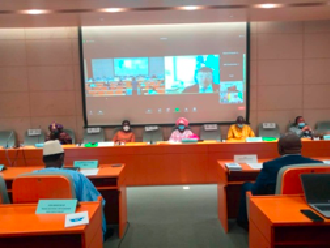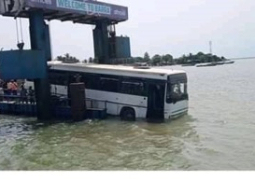
The highlight of the adopted report by experts on Wednesday estimates that $324.5M investment is needed for the member countries and regional level.
The report states that based on a survey conducted on all hydromet services of the ECOWAS member states, investment needs were estimated for countries and regional organisations along the proposed outcomes. The investment needs are estimated at $324.5 million to support the interventions in member states and regional levels to improve sustained services.
Accordingly, the investment needs for member countries is estimated at $290 million and $34.5 million as support for regional institutions.
The country level investments to the report are largely based on the self-defined needs of the country and guidance related to the service level of the country's climatological, hydrological and meteorological services.
The Minister of Communications and Digitalisations of Ghana and the President of ECOWAS Council of Ministers in charge of Hydromet, Mrs. Ursula Gifty Owusu-Ekuful, said disasters in the past two decades are estimated at a cost of about $10 billion on the African continent.
"For us who shape policy, we have seemingly neglected this critical source for collecting and analysing data for proper planning and we need a quick turnaround so we are all on the same page," she said.
"We can't always look at a straight commercial business case for revenue generating opportunities to determine where investment and support should go."
The vice president of the Gambia Dr. Isatou Touray said West Africa continues to be increasingly affected by extreme weather and climate events.
“West Africa's economy is vulnerable to climate risks, notably sectors such as agriculture, food security, energy production and transport.
More than 70% of West Africa is dependent on rain fed agriculture, with the global Covid-19 pandemic significantly impacting the region, such Covid strategy capacity, the vulnerability to climate risk is rising."
She called for a greater attention on women and children who bear the greater effects of disasters.
Important stakeholders namely the World Bank and World Meteorological Organisation reiterated their commitments to the region's efforts at mitigating the problems of climate change.
Read Other Articles In Headlines
PS Jah calls for effective coordination in gov’t
Aug 17, 2022, 9:43 PM


